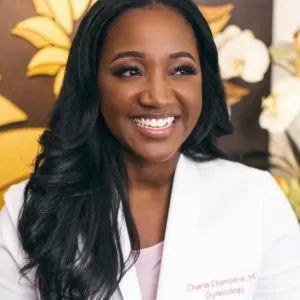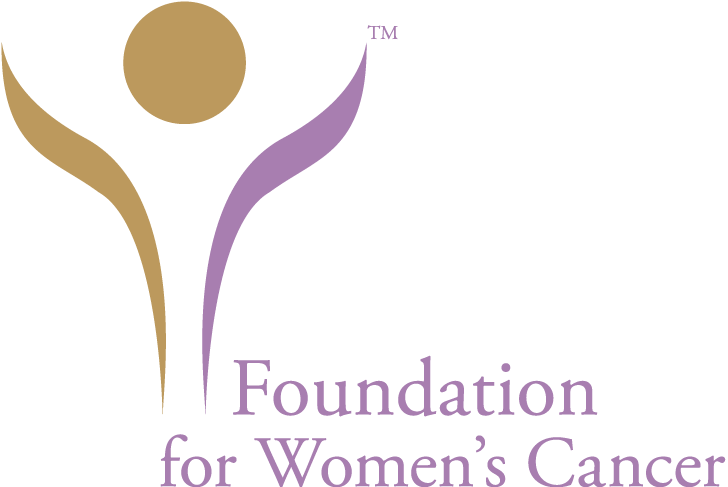
Charis Chambers, MD
Dr. Charis Chambers, known as The Period Doctor, joined the Foundation for Women’s Cancer (FWC) in December to facilitate a necessary live discussion about gynecologic cancer awareness and dismantling cultural barriers hindering Black women from accessing equitable care. Dr. Chambers offered medical perspective on the following key points:
Overview of Gynecologic Health
- Every five minutes, a woman is diagnosed with one of the five gyn cancers, totaling nearly 115,000 Americans each year; many of these people are not diagnosed until the late stages of their disease resulting in more 34,000 deaths annually from a gyn cancer.
- You can find a comprehensive list of symptoms for each gynecologic cancer on the official Foundation website: cervical, ovarian, uterine/endometrial, vaginal, vulvar.
Importance of Screening Tests and Vaccinations
- Regular Pap smears and HPV (Human Papillomavirus) testing are important in preventing cervical cancer, but these screenings do not detect or prevent other gynecologic cancers.
- The HPV vaccination can prevent certain gynecologic cancers, including cervical, vaginal, and vulvar cancers.
Uterine/Endometrial and Cervical Cancer
- Cervical cancer symptoms include:
- Excessive discharge and abnormal bleeding between periods
- Bleeding after menopause
- Uterine/endometrial symptoms include:
- Abnormal vaginal bleeding; younger individuals should report irregular or heavy vaginal bleeding
- Absent or rare periods
- Bleeding after menopause – Even brown spotting or a single spot of blood from the vagina is abnormal after menopause and should lead to a prompt gynecologic evaluation
Practical Tips for Black Patients
- Not all gyn cancers have a screening test; further conversations with your provider about symptoms and family history are critical to determine your individual risk and potential preventative measures.
- Testing is still crucial even after diagnosis because it aids in determining precise treatment for each patient’s disease.
- We encourage you to advocate for your health, including scheduling regular check-ups, discussing all concerns with healthcare providers, and seeking second opinions when necessary.
Eight in 10 gynecologic oncologists believe lack of awareness is the biggest barrier to early detection. The conversation does not have to end here – we encourage you to explore the FWC website for additional information and resources, including our downloadable educational guides and pamphlets, that you can review and discuss with your own network. Remember that being proactive about your health is empowering, and helping to educate others leads to a better future and gynecologic health for everyone.
